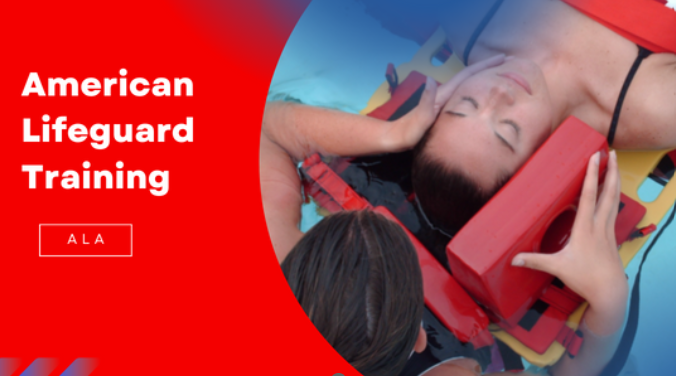
Lifeguard Certification Is Essential For Saving Lives
Lifeguarding is a noble profession that requires dedication, responsibility, and physical endurance. Lifeguards are responsible for maintaining the safety of swimmers and preventing drowning incidents. In order to become a professional lifeguard, one needs to undergo lifeguard training and certification. In this article, we will discuss everything you need to know about lifeguard certification.
What is Lifeguard certification?
Lifeguard certification is a process that ensures that an individual has the necessary knowledge, skills, and abilities to perform lifeguard duties effectively. This process involves completing a lifeguard training course that covers various topics such as water rescue techniques, CPR and first aid, pool and beach management, and emergency response procedures.
The certification process includes both written and practical examinations that assess an individual’s knowledge and abilities in lifeguarding. Upon successful completion of the training course and passing the certification exams, the individual receives a certification that is valid for a specified period of time, typically two years.
Lifeguard Classes
Lifeguard classes are the foundation of certification. These classes provide individuals with the necessary knowledge and skills to perform lifeguard duties. The classes are usually conducted by certified instructors and cover a range of topics such as water safety, rescue techniques, CPR and first aid, and pool and beach management.
Lifeguard classes can be taken at community centers, YMCA, and other organizations that offer lifeguard training. The duration of the classes can vary from a few days to a few weeks, depending on the organization and the level of certification.
Lifeguard recertification
Lifeguard certification is typically valid for two years. After this period, the individual must undergo lifeguard recertification to maintain their certification. Lifeguard recertification involves taking a review course that covers the same topics as the original training course. The recertification process includes both written and practical examinations to assess an individual’s knowledge and skills.
Lifeguard recertification is an essential process that ensures that lifeguards maintain their knowledge and skills and are up-to-date with the latest lifeguarding techniques and procedures. It is important for lifeguards to undergo recertification to maintain the highest standards of lifeguarding and to ensure the safety of swimmers.
The American Lifeguard Association
The American Lifeguard Association (ALA) is a national organization that provides lifeguard training and certification. The ALA offers a range of certification programs, including Lifeguarding, Waterfront Lifeguarding, Shallow Water Lifeguarding, and Aquatic Attraction Lifeguarding.
The ALA is recognized by many employers, including waterparks, aquatic facilities, and beach resorts, as a reputable and reliable source of lifeguard training and certification. The ALA also provides ongoing support and resources to lifeguards, including updates on lifeguarding procedures, tips for improving lifeguarding skills, and networking opportunities with other lifeguards.
Lifeguard certification Requirements
To become a certified lifeguard, you must meet certain requirements. These requirements vary depending on the organization that provides certification, but generally include:
Age: Most certification programs require that individuals be at least 15 or 16 years old. Some programs may require individuals to be older.
Swimming Ability: Individuals must demonstrate the ability to swim a certain distance and perform specific strokes. The distance and strokes required may vary depending on the certification program.
Physical Fitness: Lifeguarding is a physically demanding job, and individuals must be able to perform the duties required of them. Most certification programs require individuals to pass a physical fitness test that includes exercises such as running, push-ups, and sit-ups.
CPR and First Aid Certification: Most certification programs require individuals to have current certification in CPR and first aid. These certifications are often included in the training course. CPR certification online teaches personal trainers how to perform life-saving techniques on someone who might be having a medical emergency. By knowing CPR, personal trainers can keep someone alive until medical help arrives.
By meeting these requirements and completing the lifeguard course, individuals can become certified lifeguards and take on the responsibility of maintaining the safety of swimmers.
The Importance of Lifeguard certification
Lifeguard certification is not only important for the safety of swimmers but also for the liability of aquatic facilities. Employers are responsible for ensuring the safety of their patrons, and hiring certified lifeguards is one way to meet that responsibility.
By hiring certified lifeguards, employers can demonstrate that they have taken steps to ensure the safety of their patrons and can avoid potential legal issues that may arise from lifeguarding incidents.
In addition to liability concerns, certification is important for the professional development of lifeguards. Lifeguarding is a unique profession that requires a specific set of skills and knowledge. Lifeguard training and certification provide individuals with the opportunity to develop these skills and become experts in their field.
By maintaining their certification and continuing to learn about new techniques and procedures, lifeguards can improve their ability to save lives and provide the highest level of service to their patrons.
Conclusion
Lifeguard certification is an essential process that ensures the safety of swimmers and prevents drowning incidents. A Lifeguard course provides individuals with the necessary knowledge and skills to perform lifeguard duties effectively. The certification is valid for two years, after which lifeguards must undergo recertification to maintain their certification.
The American Lifeguard Association is a national organization that provides lifeguard training and certification. The ALA is recognized by many employers as a reputable and reliable source of lifeguard training and certification. If you are interested in becoming a lifeguard or obtaining certification, consider taking lifeguard classes from the American Lifeguard Association.







